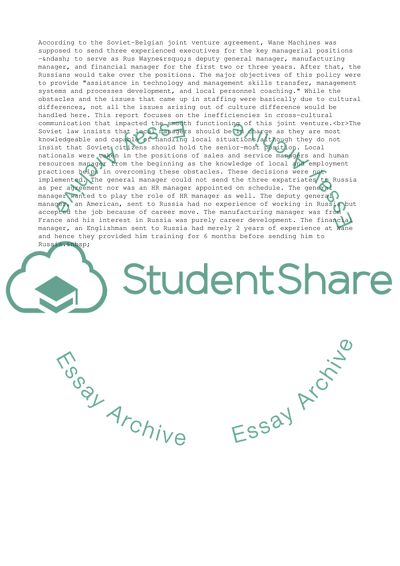Cite this document
(“Roles of a Global Manager Essay Example | Topics and Well Written Essays - 2500 words”, n.d.)
Retrieved from https://studentshare.org/management/1566069-cross-cultural-management-issues
Retrieved from https://studentshare.org/management/1566069-cross-cultural-management-issues
(Roles of a Global Manager Essay Example | Topics and Well Written Essays - 2500 Words)
https://studentshare.org/management/1566069-cross-cultural-management-issues.
https://studentshare.org/management/1566069-cross-cultural-management-issues.
“Roles of a Global Manager Essay Example | Topics and Well Written Essays - 2500 Words”, n.d. https://studentshare.org/management/1566069-cross-cultural-management-issues.


